Does Lion's Mane Increase Serotonin? Exploring Its Emotional Benefits
Last year, when I was going through a tough time, a friend suggested I try a "magic mushroom" called Lion’s Mane, clarifying it wasn't the psychedelic type. Initially doubtful but curious about natural remedies, I decided to give it a go.
Surprisingly, I began to feel more at ease, and my mood saw a noticeable uplift. This experience piqued my interest in how Lion’s Mane mushrooms affect our emotional well-being, especially their influence on serotonin levels.
Lion's Mane mushroom is reputed for its potential to influence the brain's health positively, including possibly increasing serotonin levels, a key neurotransmitter involved in mood regulation. Although research is ongoing, preliminary studies suggest that Lion's Mane can stimulate the production of nerve growth factors, which may indirectly support serotonin synthesis.
Additionally, its impact on other neurotransmitters like dopamine, oxytocin, and endorphins could further contribute to emotional well-being and happiness.
What Is Lion's Mane?
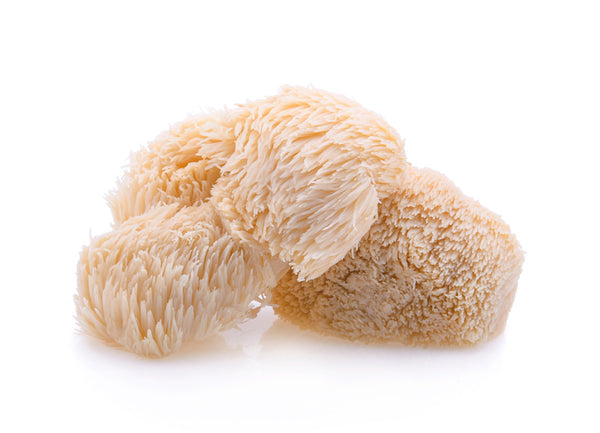
Lion's Mane, or Hericium erinaceus, has a rich history in traditional Chinese medicine, heralded for its ability to boost mental clarity, heal the nervous system, and even contribute to longevity. This mushroom interacts with the body in complex ways, potentially stimulating the production of nerve growth factors and supporting neurogenesis – the growth of new neurons.
What Is Serotonin?
Serotonin, often referred to as the "happiness hormone," has a broad impact on various bodily functions beyond just mood regulation:
- Mood and Emotional Well-being: It's central to our feelings of happiness and well-being, helping to stabilize our mood.
- Sleep Regulation: Serotonin plays a crucial role in the sleep cycle, influencing sleep quality and circadian rhythms.
- Digestive Processes: It affects the functioning of the gastrointestinal tract, regulating bowel movements and overall gut health.
- Appetite Control: Serotonin is involved in controlling appetite, particularly in reducing hunger during meals.
- Bone Health: Surprisingly, it also influences bone density, with higher levels potentially leading to decreased bone strength.
Can Lion's Mane Boost Serotonin Levels?
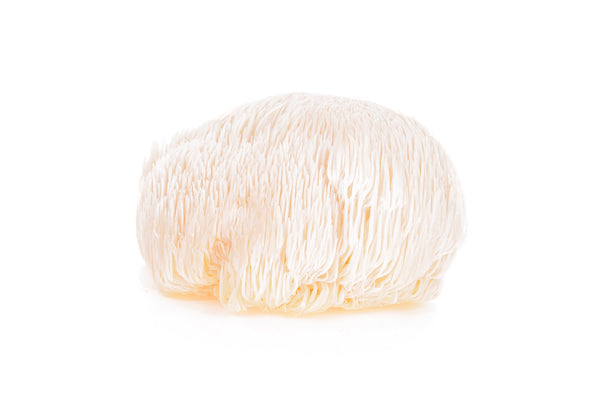
The intriguing link between Lion's Mane consumption and enhanced serotonin production is rooted in the mushroom's ability to stimulate nerve growth factors (NGFs), which are essential for the maintenance and growth of neurons in the brain. NGFs play a pivotal role in neurogenesis and the overall health of neural pathways, which are integral to the synthesis and regulation of neurotransmitters, including serotonin.
By promoting the production of NGFs, Lion's Mane may facilitate the creation and maintenance of neural circuits that are conducive to serotonin synthesis. This potential to influence the underlying neural architecture offers a promising avenue for increasing serotonin levels, thereby enhancing mood and cognitive functions, though more direct research is needed to fully understand this relationship.
How Does Lion's Mane Affect Other Happiness Hormones?
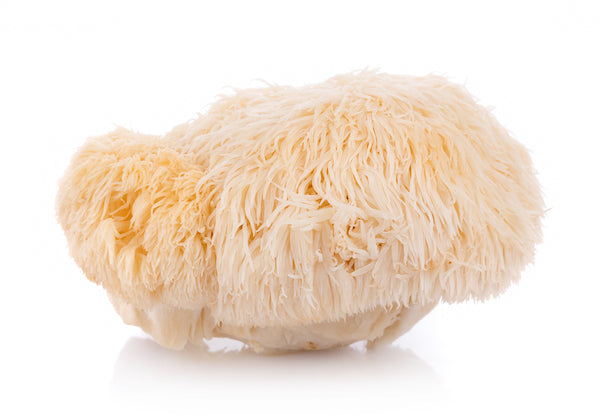
Impact on Dopamine
Dopamine, often referred to as the 'reward' neurotransmitter, plays a crucial role in our experiences of pleasure, motivation, and reward. Lion's Mane, with its potential neuroprotective and neurotrophic effects, may positively influence the brain's dopamine pathways. This could lead to enhanced feelings of motivation and joy, as well as an improved ability to experience pleasure, by potentially fostering a healthier neural environment conducive to optimal dopamine function and signaling.
Influence on Oxytocin
Oxytocin, often dubbed the 'love hormone,' is a key neurotransmitter and hormone involved in fostering feelings of love, trust, and social bonding. Although direct research on Lion's Mane's impact on oxytocin levels is scarce, the mushroom's broad benefits for brain health, including its potential to support neural growth and repair, hint at a possible supportive role in enhancing social connectivity.
This could be through the mushroom's indirect effects on the brain's emotional and social centers, potentially making social interactions more rewarding and fostering deeper connections.
Role in Endorphin Release
Endorphins, often referred to as the body's natural painkillers, are neurotransmitters that play a critical role in pain relief and can induce feelings of pleasure or euphoria.
The potential anti-inflammatory properties of Lion's Mane could facilitate the release of endorphins, possibly reducing pain and discomfort.
This mechanism might contribute to Lion's Mane's mood-enhancing effects, providing a natural boost to one's sense of well-being and happiness through increased endorphin activity.
Can Lion's Mane Make You Happier?
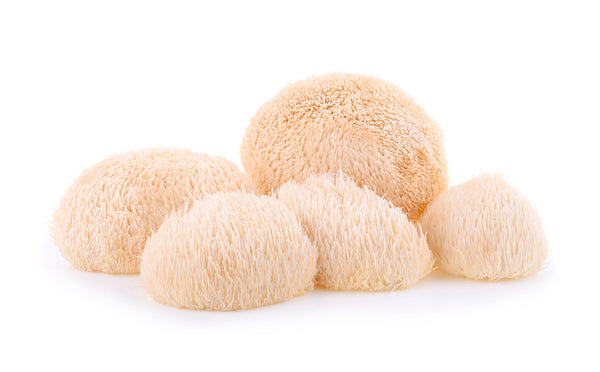
Considering the accumulated evidence and shared experiences, it's plausible to suggest that Lion's Mane could be a valuable ally in enhancing mood and emotional health. Its reputed ability to encourage nerve growth factors lays a foundation for a healthier brain environment, which is crucial for emotional regulation.
Alongside, its influence on key neurotransmitters, as previously discussed, offers a holistic approach to potentially uplifting one's mood. This interplay between Lion's Mane and the brain's chemistry underscores its potential as a natural means to foster a happier state of being.
Integrating Lion's Mane for Emotional Well-being
Incorporating Lion's Mane into your daily routine can be simple and delicious, especially with products like our cacao latte blends. Whether you're seeking inner calm, immune support, or a daily energy boost.
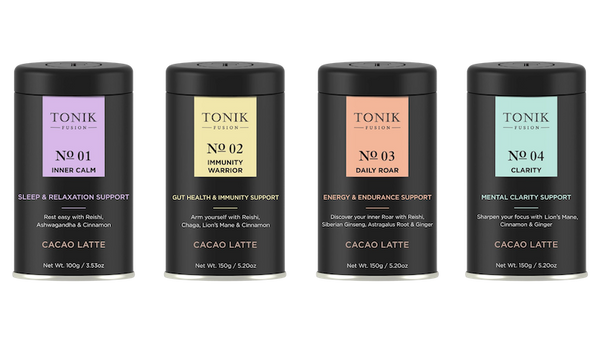
These blends not only make it easy to integrate Lion's Mane into your life but also offer a delicious way to explore its potential benefits. You can shop our full range here.
FAQs about Lions Mane & Serotonin
How Long Does It Take for Lion's Mane to Potentially Affect Serotonin Levels and Mood?
The effects of Lion's Mane on serotonin levels and mood can vary, with some individuals reporting improvements within a few weeks, while others may take longer to notice changes.
Can Lion's Mane Supplements Interact with Medications That Regulate Serotonin, Like SSRIs?
While direct studies are lacking, it's advisable to consult with a healthcare provider before combining Lion's Mane with SSRIs or other serotonin-regulating medications, due to potential interactions.
Are There Specific Components in Lion's Mane That Are Thought to Influence Neurotransmitter Activity?
Hericenones and erinacines, compounds found in Lion's Mane, are believed to stimulate nerve growth factors, which could indirectly influence neurotransmitter activity.
How Does Lion's Mane Compare to Other Adaptogens in Terms of Its Impact on Emotional Well-being?
Lion's Mane is unique among adaptogens for its specific neurotrophic properties, which may offer distinct advantages for cognitive function and emotional well-being.
Can the Benefits of Lion's Mane on Mood and Neurotransmitters Be Enhanced by Combining It with Other Natural Supplements or Practices?
Combining Lion's Mane with other adaptogens or practices like meditation may synergize and enhance its mood-boosting effects, though personal experiences can vary.
Are There Any Long-Term Effects of Using Lion's Mane on the Brain's Neurotransmitter Systems?
Long-term studies on Lion's Mane are limited, but current evidence suggests it may support brain health with minimal risk of negative effects on neurotransmitter systems.
Is There Research on Lion's Mane's Effects on Neurotransmitter Levels in Humans, or Are Current Studies Primarily Animal-Based?
Most current research on Lion's Mane and neurotransmitters is based on animal studies, with human research being an emerging field.
Can Lion's Mane Consumption Support Recovery from Neurological Conditions or Injuries by Influencing Neurotransmitter Levels?
Emerging research suggests Lion's Mane may support neurological recovery through its neurotrophic effects, but more studies are needed to fully understand its role in neurotransmitter regulation during recovery.
Closing Thoughts
In conclusion, the question of whether Lion's Mane can increase serotonin opens up a broader discussion on its role in emotional well-being. As we continue to explore the fascinating interplay between adaptogenic mushrooms and mental health, consider trying our cacao latte blends for a holistic approach to well-being.
Visit our shop and take our quiz to find the perfect cacao latte blend for your goals and lifestyle. Let's embark on this journey to enhanced mental clarity and happiness together.